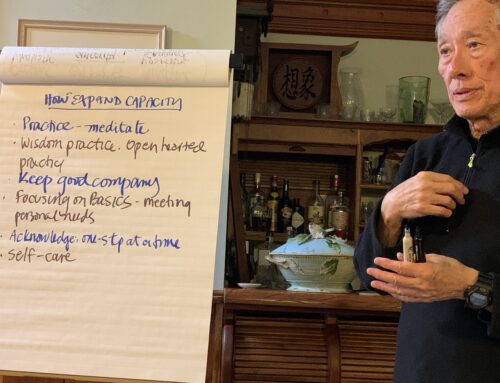
res·o·lu·tion
rezəˈlo͞oSH(ə)n/
noun
a firm decision to do or not to do something.
in·ten·tioninˈten(t)SH(ə)n/
noun
a thing intended; an aim or plan.
It’s that time of year when we’re all supposed to be making resolutions that we are then likely to break within a month or so. How do you feel when you ‘fail’ at something, such as a resolution? What impact does it have on the behavior you were attempting to address? If you’re like most people, you feel bad about yourself when you fail, and you are not only likely to return to the behavior, but to do so with a vengeance.
This is perfectly normal. Typically, the behavior we are addressing is one we turn to when we are not feeling ‘whole’, and we feel a whole lot less than whole when we’ve failed at some great plan.
At InStill, we feel that an intention can prove to be a lot more effective than a resolution. This may seem a little counterintuitive—a resolution is a firm decision, after all, while an intention is, well, just an intention. Intentions can seem a little wishy-washy in the face of resolutions.
But it’s so much harder to fail at an intention. Every time you don’t meet your intention, you can note this and aim to do better next time. A resolution is a much more ‘one and done’ kind of thing. Once you break it, there can a hard swing in the other direction, just like the one drink, one drunk of Alcoholics Anonymous.
And intentions can have another advantage over resolutions, in the very nature of how we address them. Resolutions tend to be about outcomes while intentions tend to be about process. I might resolve to lose 40 pounds, but I am more likely to intend to eat more healthily or exercise more. The practice of mindfulness is always about the process rather than the outcome, which is one reason why intentions are so much more relevant to this practice than resolutions.
To make them even more relevant, we would suggest you make your intentions true intentions by focusing on intrinsic goals. Instead of eating more healthily or exercising more, for instance, you might have an intention to be more contented with your body image. For some of us, this is as simple as changing the way we see ourselves; for others, this involves changing how we live our lives; and for most of us, it involves a bit of both. Sticking with the same kind of outcome, another intention might be to pay more attention to what your body is telling you. If you listen closely, you will know when it is time to eat (and when it isn’t), and how much you really need. You’ll be able to say ‘no’ to food, not because you’re trying to lose weight, but because you’ve noticed you’ve had enough, or maybe because you’ve noticed that particular type of food doesn’t work for you. If you listen closely, you will also hear your body telling you to get off your butt and get active from time-to-time.
There are also many unforeseen benefits received from setting intentions. As you begin paying more attention to your actual needs, you may also begin noticing these, too.
Happy New Year! May it be filled with positive intentions and unexpected blessings for outcomes.



